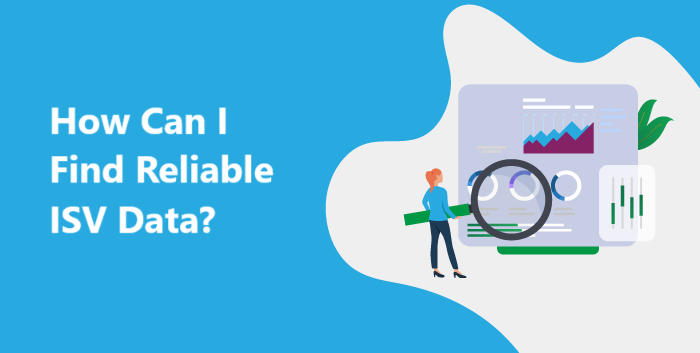In order to be outstanding at marketing, it’s important to question everything you do all the time. And the real key to getting super good at marketing is something you may not believe: it’s getting comfortable with things not turning out the way you planned.
Not being afraid to test, learn as you go, and learn from your mistakes is key if you want to become fantastic at it. Yet, most marketers won’t fess up to the fact that they are not “experts” and that they can’t always the predict results of a particular campaign… Admit to failure? I have come across very few marketers who are willing to admit that a campaign that they designed and executed was a disaster. It’s unfortunate really—failure is just another word for learning and is a normal part of life. It is a part of any learning process and besides, if everything you do is perfect all the time, there’s no room for growth and improvement.
I had a boss years ago who told me that accidents happen when there are at least three factors involved: the driver was driving too fast, the road was slick because of the rain, and the car’s tires were bald. If any one of those factors had changed (the driver was driving slower, it wasn’t raining, or the tires were new), the accident wouldn’t have happened. I believe he was right when he said this. Accidents happen but usually not because of one factor that can be isolated in a bubble on its’ own. Of course, as a marketer, it’s easy to pinpoint errors in hindsight. It’s easy to say, “That campaign didn’t work because…” But, when you are in the middle of it all and you don’t necessarily have the bird’s-eye view that’s needed to make that kind of evaluation, you can unknowingly lead yourself towards failure. The trap not to fall into here is the blame game: looking at all the external factors outside of yourself that caused your experiment to fail instead of looking at what you could do better the next time to improve the outcome.
Most marketers don’t want to admit that they make mistakes, that they don’t know what’s best, or what is going to work. This is especially true when you work with the largest agencies—it’s very easy for them to play the blame game and find a scapegoat so that they can continue to justify their existence. Let’s face it: blaming something outside of ourselves to explain why whatever it is we tried didn’t work, is an easy way out of taking personal responsibility. It is essentially saying, “look, it’s not my fault.” But when you take all of this out of the equation because we come to accept that there is no failure, that’s when we start to get somewhere.
As marketers, whether we admit it or not, we are constantly learning as we go. The best marketers are willing to take the risk and say, “We need to test this and see what happens,” because the reality is that that’s what happens ALL THE TIME. Behind the scenes, marketers are constantly learning, testing theories, and surprised by outcomes that they weren’t expecting. Some campaigns you are sure will be successful aren’t; while others work and you’re not even sure why. When you take into account all the variables that can affect a particular marketing campaign (time, target, outreach method, resources, budget…) it’s a wonder that anything works at all! And again, virtually no one in the industry is willing to admit that.
It’s important to remember that you do not need a degree in marketing to work in marketing. Maybe you already have a degree in marketing and that’s fine too, but regardless, in order to get good at marketing, you need to be willing to take risks, try new strategies, be agile, and learn as you go. Of course, you can always model “experts,” but the real people you need to model are the ones who have the mindset that failure means learning, and that learning leads to growth. As marketing author and entrepreneur Dean Graziosi says, “there is a science and an art to marketing.” The science is the easy part since that is the delivery method (or the channel) you will use to get your message across; the art is where most people get lost because they forget the bigger picture.
The art of marketing needs to answer two questions, and two questions only:
- How can I provide the most exceptional value to serve my prospect at the highest level so that he or she must buy from me and no one else?
- How can I simplify my message so that my irresistible offer is understood and appreciated?
If so many startup tech companies stop before their products are a hit it’s not because of poor product/market fit as most people would have you believe. It’s the fact that the developers who were sitting in their parent’s garage coding the next new innovation had no clue about the art of marketing. It is also highly likely that they built their solution without really understanding their target audience in the first place. And for sure somewhere along the way, someone gave up trying simply because what they were doing wasn’t working.
I have come to find in my life that it is really easy to say, “I did everything to make that work, and here’s why it didn’t,” and then list out all the external factors that didn’t go my way. It’s much harder to take personal responsibility for our role in helping co-create the outcome we got, and then consciously decide to choose again. The truth in the matter is that when we stop, we just got to the end of our skill set and stopped trying. Until we get the end result we are looking for, we simply cannot say we tried everything. It’s physically not possible. Pivoting in a new direction is not always easy, and growth comes from stepping outside of our comfort zone to pick ourselves up and dust ourselves off when attempt number 999 still didn’t work. The key to getting attempt 1000 to work is by putting the end-user customer at the forefront of all initiatives (whether that be on the marketing side or the development one).
It’s important to remember that innovation in and of itself is never enough. You could have the greatest product on earth and if nobody knows about it, it won’t sell. As Tony Robbins says, “It’s not a lack of resources that makes you fail; lack of resourcefulness is the real reason.” Being successful at marketing is a mindset more than anything else. By embracing this fundamental aspect about marketing, you will begin to shift direction.
Shedding false beliefs is the very first step in the process to putting yourself on the right track. Starting with a clean slate, giving yourself a fresh start, and staying open to receiving all the possibilities and opportunities that are presented to you as you begin to create a new way is the only way that you can move forward to produce a different outcome. Learning to question everything and being secure enough within yourself to know that it’s ok not to know all the answers is a commitment to achieving greatness.
Are you interested in learning more about up-leveling your skill-set around B2B software marketing?








